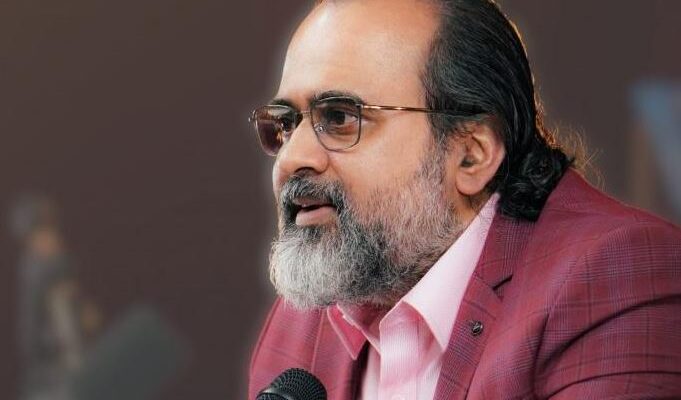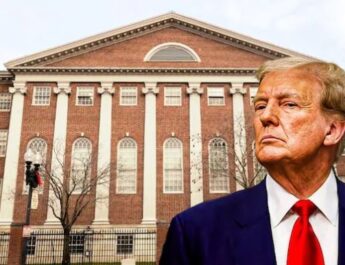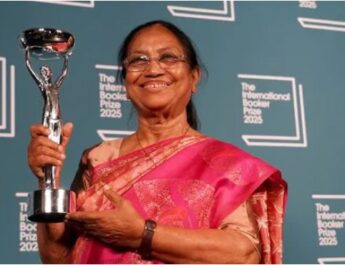He appeared very average, even unattractive. Short in stature, with a slender body, a dark complexion, and an ordinary face, those disproportionate earlobes! No broad shoulders, no wide chest. Yet, in the past several centuries, no one’s image has been gazed upon as much as his in India. No one’s statues have been erected more than his. No face has been printed more than his.
To begin with, there was neither allure nor thunder in his voice. Often when he spoke, no one would hear or pay attention. And then came a point when at his mere call, India would rise as one. His voice would reach every corner of the country, almost like a divine proclamation, and even a distant villager would turn asatyagrahi.
Despite coming from a Vaishnav merchant family, he once triedmeat out of curiosity, and deeply regretted it. Later, thousands of people became vegetarians after coming to his ashram. His name became forever associated with vegetarianism and love for animals.
In his youth, he had doubts about religion and even considered the idea of converting. He could not hold much faith in Indian piety. Later, he was called ‘Mahatma’ and ‘the Saint of Sabarmati.’ He regarded the Bhagavad Gita as his mother and Ramrajya as true freedom. His entire movement was based on religious values. Politics without religion is a terrifying thing, he said.
Once he stole money from his elder brother, and later, he confessed everything to his father in a letter. Afterward, for thirty-five years, a poor country offered him donations and resources with faith. Not only industrialists gave with trust, but even poor farmers contributed whatever little they could—two paise, two rupees. For them, dedicating money meant offering a sacrifice in the sacred yajna of freedom.
Beginning his career, he was timid and could not speak in a gathering. After becoming a barrister, he would become anxious in the official setting. Out of fear of cross-examination in court, he gave up practice in favour of writing petitions. And then came a point, when the British empire – in which the Sun never set – trembled at his name. Those who won two world wars and defeated the Germans and Japanese could not overpower a naked saint leaning on a staff.
Setting out, he was nervous about meeting people, introverted, and fond of solitude. And then, throughout his life, he addressed thousands of public meetings, mingled with people, and moved among them. He met millions during gatherings and marches, and anyone who met him could not leave without being influenced.
As a young man, his sexual desire was intense. Even in his father’s final moments, lust drove him away from the father’s bedside. He acknowledged and honestly repented. The same man evolved to adopt the traditional vow of brahmacharyarendering it a broader understanding. He said that brahmacharyais not merely the restraint of sexual urge. Without liberation from the various afflictions of the mind, brahmacharya is meaningless. At the age of thirty-eight, he turned a celibate in the true sense.
Due to the old patriarchal conditioning of male superiority, he attempted to impose his opinions on his wife several times. However, Kasturba gracefully resisted his domination and refused to be cowed down. Gradually, he began to humble himself before his wife and started learning the lesson of non-violent non-cooperation. He said that in this regard, his wife became his teacher.
Initially, he could not remain firm before others. Under pressure, he would often yield to others’ wishes. And then he developed into one of the most unyielding leaders history has seen. Churchill would break into a sweat, Jawaharlal would become anxious, and Mountbatten would frown when Gandhi put down his frail foot down. Whether it was the Non-Cooperation Movement or Civil Disobedience, he would start based on his own decisions and bring it to an end himself. If his words were not heeded, he would stubbornly undertake an indefinite fast.Even Jinnah acknowledged that Gandhi was the most difficultobstacle in the creation of Pakistan.
When he reached Britian for his education, he was gripped by feelings of inferiority. He spent time and money trying to appear like the British, and emulate their mannerisms. A few decades later, the entire British establishment looked at him with aweand respect. He became, and remains to date, a revered and inspirational ideal for millions of Europeans and Americans.From Einstein to Dalai Lama to Barack Obama, the list of Western giants who idolize Gandhi is long. After Buddha, he remains the most inspiring Indian figure in the West. More popular and more respected than even Tagore and Vivekanand.
From his family and milieu, he inherited caste-based customs, environment, and dogmas of the time. His wife too believed in the caste system. Gradually he awakened to realise the oppression and darkness contained in this tradition. He gave the marginalized sections a graceful and beautiful name: Harijan(God’s fellow). Much of his work after 1934 is about struggling for Harijan rights and welfare. There was strong opposition when he lovingly accepted Harijans into his ashram. Financial support for the ashram was cut off, and even his wife, sister, and ashram residents stood in defiance. He firmly expelled his own sister from the ashram and adopted a Harijan girl to teach his wife a lesson.
He studied in Britain and practiced law in South Africa, spending decades abroad. Foreign clothes and surroundings became part of his habits. Ultimately, he not only discarded foreign garments but went to the extent of giving up the attire of even the common man. He became a loincloth-wearing ascetic. He made khadi a symbol of village self-governance and took the spinning wheel as his weapon.
He had a tremendous command over the English language. Fewcould speak and write English as he did. However, he criticized the Congress for working in English and advocated for the extensive use of Hindi and regional languages. He emphasized the centrality of Hindi in awakening the heart of the nation.
The Chinese considered him a living Buddha, the Christians saw in him the image of Jesus, and for Indians, he was undoubtedly the greatest Mahatma of the modern age. When Mira Ben (Madeleine Slade) came to live in the ashram, he said, ‘I do not possess the completeness of a guru; I can only guide as a friend.’ Throughout, he always kept himself grounded and never encouraged the notion of divinity about himself.
He did not descend from the sky; he rose from the earth. His words carried not the mystical fragrance of celestial flowers, but the earthy aroma of soil. He had undertaken a laborious and long journey from man to Mahatma.
He rightly said: His life is his message. What was possible for him is possible for all. When someone devotedly moves forward, challenging their past, their tendencies, and their limitations, their presence infuses a unique consciousness into the entire world.
(Acharya Prashant is a Vedanta teacher, social reformer and a national bestselling author.)




